Find Help
More Items From Ergsy search
-
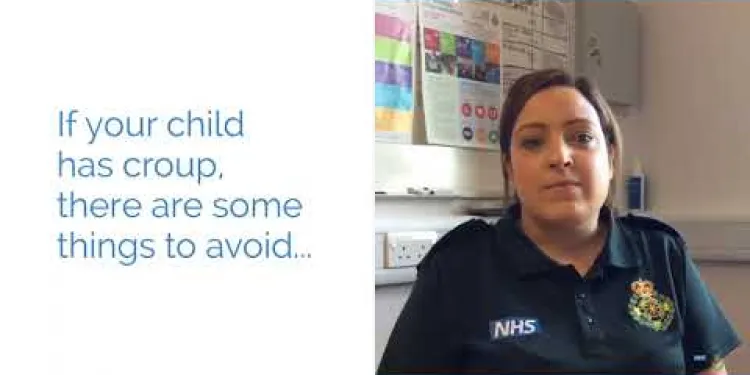
What to do when your child has... croup
Relevance: 100%
-
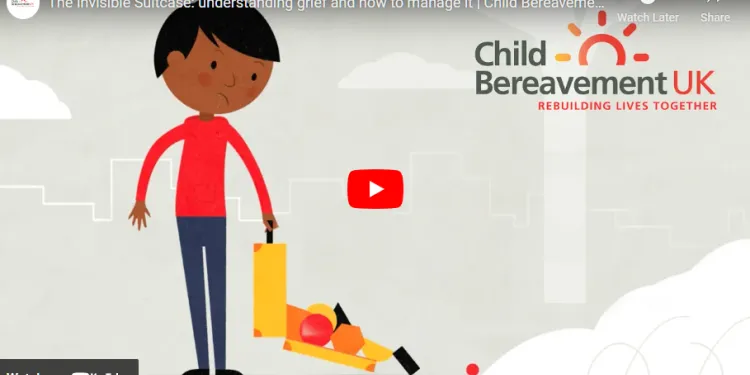
Child Bereavement
Relevance: 37%
-
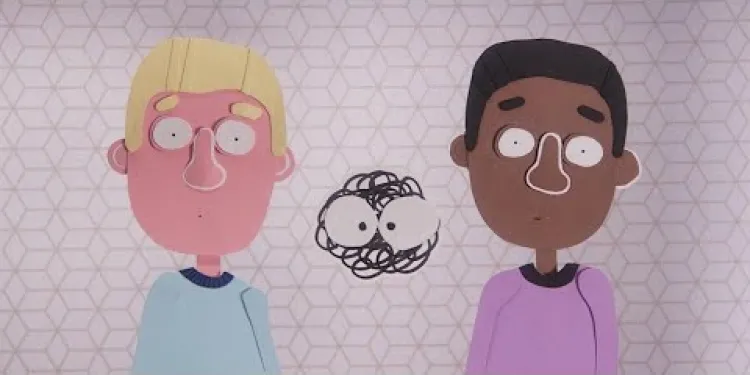
My Stammering Child
Relevance: 37%
-

Navigating Child Custody Laws in the UK
Relevance: 34%
-

Is screening painful or risky for my child?
Relevance: 33%
-

Caring for a child with fever | NHS
Relevance: 33%
-

Child Care Proceedings | Family Law
Relevance: 32%
-

What should I do if I suspect my child is being groomed?
Relevance: 32%
-

Can my child get braces on the NHS?
Relevance: 32%
-

My child has vomiting and diarrhoea - what do I do?
Relevance: 32%
-

How can I tell if my child is being groomed?
Relevance: 31%
-
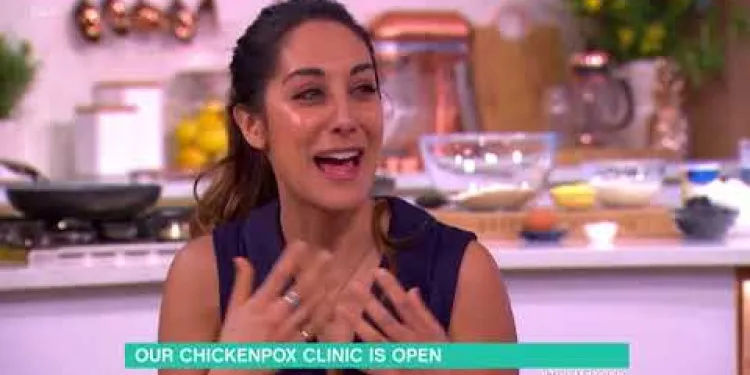
How to Keep a Child With Chickenpox Comfortable
Relevance: 31%
-

Navigating Child Custody and Visitation Rights in Modern UK
Relevance: 31%
-
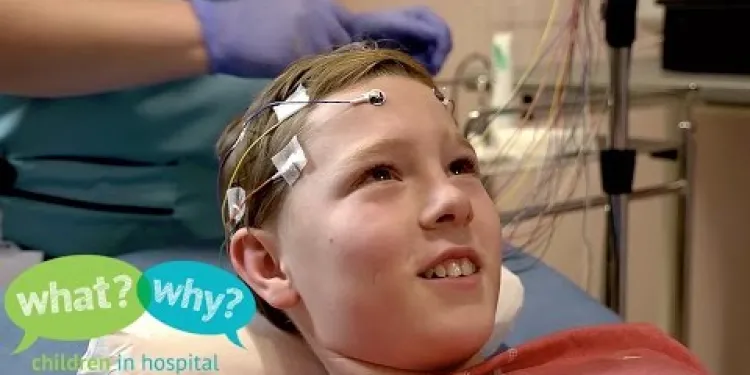
What happens when my child has an EEG?
Relevance: 31%
-
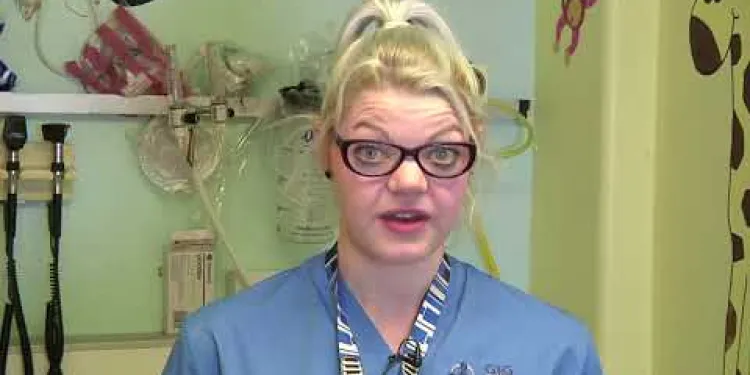
Advice if your child has... A High temperature
Relevance: 30%
-

What happens if my child's screening results are positive?
Relevance: 30%
-

Managing and treating your child's eczema
Relevance: 30%
-

Should I test my child for high blood pressure?
Relevance: 30%
-

Stammering myth 4: You should ignore a child's stammer
Relevance: 30%
-

How can I educate my child to recognize grooming behaviors?
Relevance: 30%
-

Should I limit my child's internet usage to prevent grooming?
Relevance: 29%
-

Eczema - Your child's appointment | Dermatology | Paediatrics
Relevance: 29%
-

How do I treat my child's cold? (9 - 30 months) | NHS
Relevance: 29%
-

What are the common signs that a child might be a victim of grooming?
Relevance: 29%
-

How have child custody laws changed in 2026?
Relevance: 29%
-

Understanding Parental Rights in Light of New UK Child Protection Legislation
Relevance: 29%
-

How does self-esteem affect a child's susceptibility to grooming?
Relevance: 29%
-

Having a child with Down's syndrome | NHS
Relevance: 29%
-

How often should screening be conducted if my child is at risk?
Relevance: 29%
-

Campaigners Urge Review of Child Benefit Rates in Light of Inflation
Relevance: 29%
-

Three-year limit for child sexual abuse claims to be removed
Relevance: 28%
-

Are there any symptoms of type 1 diabetes I should watch for in my child?
Relevance: 28%
-

How can I build my child's self-confidence to help prevent grooming?
Relevance: 28%
-

Factors that trigger eczema in your child
Relevance: 28%
-

How has child support calculation been updated in 2026?
Relevance: 28%
-

What updates have been made to enforce child support in 2026?
Relevance: 28%
-

Have the rules for changing a child's name in family court changed in 2026?
Relevance: 27%
-

Should I screen my child for type 1 diabetes?
Relevance: 27%
-

Building Understanding and Supporting Your Child with Tourette’s Syndrome/Tics
Relevance: 27%
-

At what age should my child be screened for type 1 diabetes?
Relevance: 26%
What to Do When Your Child Has Croup
Recognising Croup Symptoms
Croup is a common respiratory condition in young children characterised by a distinctive barking cough, hoarse voice, and noisy breathing. Symptoms often worsen at night and can be alarming for both the child and parents. In the United Kingdom, croup tends to occur in autumn and early winter, often resulting from viral infections.
Home Care Tips
Most cases of croup can be managed at home. Here are some steps to help relieve your child's discomfort:
- Stay Calm: Try to keep your child calm, as crying can worsen the symptoms. Hold them upright, and offer comfort.
- Hydration: Ensure your child stays well-hydrated. Offer water, breast milk, or formula frequently.
- Moist Air: Use a humidifier in your child's room. Alternatively, you can sit in a steam-filled bathroom for 10 minutes.
- Cool Air: In some cases, exposing your child to cool night air for a few minutes can help reduce symptoms.
When to Seek Medical Help
While most croup cases resolve on their own, certain symptoms may require medical attention. You should visit NHS or seek immediate help if your child:
- Has difficulty breathing or shows signs of severe distress.
- Exhibits stridor (a high-pitched wheezing sound) that is persistent.
- Has a bluish or pale complexion around the lips and face.
- Shows signs of dehydration.
Preventing Croup
Preventing croup involves good hygiene practices, such as regular handwashing and keeping your child away from those who are ill. Ensure your child receives all recommended vaccinations, including the flu vaccine, as the flu virus can lead to croup.
Conclusion
Croup can be a concerning illness for parents, but with proper care and attention, most children recover quickly. Understanding how to manage symptoms at home and knowing when to seek medical help can provide peace of mind. For more information and guidance, always feel free to contact your GP or visit the NHS website on croup.
What to Do When Your Child Has Croup
Recognising Croup Symptoms
Croup is an illness that affects the breathing of young children. It has a barking cough, a hoarse voice, and noisy breathing. Symptoms can get worse at night and might scare you and your child. Croup happens a lot in the autumn and early winter because of viruses.
Home Care Tips
You can usually take care of croup at home. Here are some ways to help your child feel better:
- Stay Calm: Keep your child calm. Crying can make it worse. Hold them upright and comfort them.
- Hydration: Give your child lots to drink. Offer water, breast milk, or baby formula often.
- Moist Air: Use a humidifier in their room. Or sit with them in a steamy bathroom for 10 minutes.
- Cool Air: Sometimes, going outside in the cool air for a few minutes can help.
When to Seek Medical Help
Croup usually gets better on its own, but sometimes you need a doctor. Get help if your child:
- Has trouble breathing or looks very upset.
- Makes a wheezing sound that doesn’t go away.
- Looks blue or very pale around the lips and face.
- Seems very thirsty or is not drinking enough.
Preventing Croup
To stop croup from happening, practice good hygiene. Wash hands often and keep away from sick people. Make sure your child gets all their vaccines, like the flu shot, because the flu can cause croup.
Conclusion
Having a child with croup can be scary, but most get better quickly with the right care. Knowing how to help at home and when to see a doctor can make you feel better. For more help, you can always talk to your doctor or visit the NHS website on croup.
Frequently Asked Questions
What are the symptoms of croup in children?
Common symptoms of croup include a barking cough, hoarseness, noisy or laboured breathing, and sometimes a fever.
Is croup contagious?
Yes, croup is usually caused by a viral infection and can be contagious, especially in the early stages.
How can I help my child breathe more easily during a croup attack?
Keep your child calm, as crying can worsen breathing. Use a cool-mist humidifier in their room or take them into a steamy bathroom to help soothe their airways.
Should I take my child to the GP if they have croup?
You should contact your GP if your child has difficulty breathing, seems excessively sleepy, shows signs of dehydration, or their symptoms worsen.
Can croup be treated at home?
Mild cases of croup can often be managed at home with rest, hydration, and cool mist humidifiers. However, it is important to monitor your child's symptoms closely.
What medications can be used to treat croup?
Doctors may prescribe steroids to reduce airway inflammation in severe cases. Over-the-counter fever reducers and pain relievers like paracetamol can also help make your child more comfortable.
How long does croup typically last?
Croup usually lasts between 3 to 7 days, but the more severe symptoms often improve within 48 hours.
Can croup cause complications?
In rare cases, croup can lead to complications such as ear infections, pneumonia, or severe breathing difficulties that require hospitalisation.
Are there any long-term effects of croup?
Most children recover from croup without any long-term effects, but frequent episodes of croup should be discussed with your GP.
Is there a way to prevent croup?
Good hygiene practices such as frequent handwashing, avoiding close contact with sick individuals, and keeping surfaces clean can help prevent the spread of viruses that cause croup.
Can my child go to school if they have croup?
It's best to keep your child home from school if they have croup to prevent spreading the virus and to allow them to rest and recover.
When is croup considered a medical emergency?
Seek immediate medical attention if your child has severe difficulty breathing, bluish coloration around the lips, rapid breathing, or if they are drooling excessively and have difficulty swallowing.
What causes croup in children?
Croup is most commonly caused by parainfluenza viruses, but other viruses like influenza, adenovirus, and respiratory syncytial virus (RSV) can also cause croup.
Does croup affect certain age groups more than others?
Croup most commonly affects children between 6 months and 3 years old, but it can occur in older children as well.
Can adults get croup?
While rare, adults can get croup, but it is more commonly referred to as laryngitis in adults due to the difference in anatomy and symptoms.
What signs show a child has croup?
Signs of croup are:
- A cough that sounds like a bark
- A hoarse voice
- Noisy breathing or hard breathing
- Sometimes, a fever
If you find it hard to read, try using audiobooks or ask someone to read to you.
Can you catch croup from others?
Croup is an illness that can be passed from one person to another. This means you can catch it. Follow these steps to help protect yourself and others:
- Wash your hands often with soap and water.
- Try not to touch your face with dirty hands.
- Cover your mouth with a tissue or your elbow when you cough or sneeze.
- Keep away from people who are sick.
Yes, croup is caused by a virus. It can spread to other people, especially when it has just started.
How can I help my child breathe better during croup?
Help your child stay calm. Crying can make it harder to breathe. Use a cool-mist humidifier in their room. You can also take them into a steamy bathroom to help them breathe better.
Should I take my child to the doctor if they have croup?
If your child has croup, you might wonder if you should take them to the doctor. Here is how to decide:
- If your child is having trouble breathing, see a doctor right away.
- If they have a fever or are feeling very unwell, it’s a good idea to visit the doctor.
- If you are worried about their health, it’s okay to ask the doctor for help.
You can also use things like books with pictures or videos about croup to learn more. You can practice telling the story of what is wrong with your child when you talk to the doctor, so you feel ready.
Call your doctor if your child:
- Finds it hard to breathe
- Is very sleepy
- Isn't drinking enough and seems thirsty
- Gets sicker
Use tools like picture cards to help your child tell you how they feel.
Can you help a child with croup at home?
Yes, you can help a child with croup at home. Here are some ways to make the child feel better:
- Let the child rest and stay calm.
- Give the child plenty of fluids, like water or juice.
- Sit with the child in a steamy bathroom for 10-15 minutes. You can do this by running a hot shower.
- Use a cool-mist humidifier in the child's room.
If the child is struggling to breathe, call a doctor or go to the hospital right away.
If your child has a mild case of croup, you can usually take care of them at home. Make sure they get plenty of rest and drink lots of fluids. Using a cool mist humidifier can also help them feel better. Keep a close eye on how your child is doing.
What medicines can help with croup?
Doctors might give steroids to help with swelling in the airways if things are very bad. You can also use medicine like paracetamol that you can buy without a prescription. This can help if your child has a fever or pain.
How long does croup usually last?
Croup can last 3 to 7 days. The really bad symptoms often get better in 2 days.
Can croup cause problems?
Croup can make it hard to breathe. Most children get better in a few days.
If you are worried, talk to a doctor or nurse.
To feel better, you can:
- Drink lots of water.
- Stay calm and rest.
- Use a humidifier to make the air moist.
Sometimes, croup can cause other problems. It can give you an ear infection. It can also lead to pneumonia, which is like a very bad cold in your lungs. If it gets really hard to breathe, you might need to go to the hospital.
Tip: If reading is hard, try using a ruler or your finger to guide your eyes along the line. This can help you keep your place and understand better.
Can croup cause problems later on?
Most children get better from croup and do not have problems later. If your child keeps getting croup, talk to your doctor.
Can you stop croup from happening?
To stop viruses that cause croup, you can:
- Wash your hands often
- Stay away from people who are sick
- Keep surfaces clean
These are good habits to keep everyone healthy!
Can my child go to school if they have croup?
Croup is a cough that sounds like a bark. It can make it hard to breathe.
If your child has croup, keep them home. They need rest to get better.
Help your child feel better with these tips:
- Give them water to drink.
- Let them breathe in steam from a hot shower.
- Use a humidifier in their room.
Call the doctor if your child is having trouble breathing.
If your child has croup, it's good to keep them at home. This stops the spread of the virus. Staying home also helps them rest and get better.
When is croup very serious and needs a doctor?
Go to the doctor right away if your child is really struggling to breathe, has blue lips, is breathing very fast, or is drooling a lot and can't swallow properly.
What makes kids get croup?
Croup is when a child's throat is swollen. It makes it hard to breathe and sounds like barking.
Why do kids get croup?
- Croup is often caused by a virus. This is a tiny germ that makes you sick.
- The virus can spread when someone coughs or sneezes.
- Cold air or getting a cold can also make croup happen.
How can we help?
- Breathe in steam from a warm shower.
- Go outside where it is cool, but not too cold.
- Drink plenty of water or warm drinks.
- Ask a grown-up to call a doctor if it gets worse.
Croup is often caused by a virus called parainfluenza. But other viruses can also cause croup, like the flu, adenovirus, and RSV.
Who gets croup the most?
Croup mostly happens to kids who are 6 months to 3 years old, but older kids can get it too.
Can grown-ups have croup?
Adults can sometimes get croup. But in adults, it is usually called laryngitis because their bodies are different from children's and their symptoms are different too.
Useful Links
This website offers general information and is not a substitute for professional advice.
Always seek guidance from qualified professionals.
If you have any medical concerns or need urgent help, contact a healthcare professional or emergency services immediately.
Some of this content was generated with AI assistance. We’ve done our best to keep it accurate, helpful, and human-friendly.
- Ergsy carfully checks the information in the videos we provide here.
- Videos shown by Youtube after a video has completed, have NOT been reviewed by ERGSY.
- To view, click the arrow in centre of video.
- Most of the videos you find here will have subtitles and/or closed captions available.
- You may need to turn these on, and choose your preferred language.
- Go to the video you'd like to watch.
- If closed captions (CC) are available, settings will be visible on the bottom right of the video player.
- To turn on Captions, click settings .
- To turn off Captions, click settings again.
More Items From Ergsy search
-

What to do when your child has... croup
Relevance: 100%
-

Child Bereavement
Relevance: 37%
-

My Stammering Child
Relevance: 37%
-

Navigating Child Custody Laws in the UK
Relevance: 34%
-

Is screening painful or risky for my child?
Relevance: 33%
-

Caring for a child with fever | NHS
Relevance: 33%
-

Child Care Proceedings | Family Law
Relevance: 32%
-

What should I do if I suspect my child is being groomed?
Relevance: 32%
-

Can my child get braces on the NHS?
Relevance: 32%
-

My child has vomiting and diarrhoea - what do I do?
Relevance: 32%
-

How can I tell if my child is being groomed?
Relevance: 31%
-

How to Keep a Child With Chickenpox Comfortable
Relevance: 31%
-

Navigating Child Custody and Visitation Rights in Modern UK
Relevance: 31%
-

What happens when my child has an EEG?
Relevance: 31%
-

Advice if your child has... A High temperature
Relevance: 30%
-

What happens if my child's screening results are positive?
Relevance: 30%
-

Managing and treating your child's eczema
Relevance: 30%
-

Should I test my child for high blood pressure?
Relevance: 30%
-

Stammering myth 4: You should ignore a child's stammer
Relevance: 30%
-

How can I educate my child to recognize grooming behaviors?
Relevance: 30%
-

Should I limit my child's internet usage to prevent grooming?
Relevance: 29%
-

Eczema - Your child's appointment | Dermatology | Paediatrics
Relevance: 29%
-

How do I treat my child's cold? (9 - 30 months) | NHS
Relevance: 29%
-

What are the common signs that a child might be a victim of grooming?
Relevance: 29%
-

How have child custody laws changed in 2026?
Relevance: 29%
-

Understanding Parental Rights in Light of New UK Child Protection Legislation
Relevance: 29%
-

How does self-esteem affect a child's susceptibility to grooming?
Relevance: 29%
-

Having a child with Down's syndrome | NHS
Relevance: 29%
-

How often should screening be conducted if my child is at risk?
Relevance: 29%
-

Campaigners Urge Review of Child Benefit Rates in Light of Inflation
Relevance: 29%
-

Three-year limit for child sexual abuse claims to be removed
Relevance: 28%
-

Are there any symptoms of type 1 diabetes I should watch for in my child?
Relevance: 28%
-

How can I build my child's self-confidence to help prevent grooming?
Relevance: 28%
-

Factors that trigger eczema in your child
Relevance: 28%
-

How has child support calculation been updated in 2026?
Relevance: 28%
-

What updates have been made to enforce child support in 2026?
Relevance: 28%
-

Have the rules for changing a child's name in family court changed in 2026?
Relevance: 27%
-

Should I screen my child for type 1 diabetes?
Relevance: 27%
-

Building Understanding and Supporting Your Child with Tourette’s Syndrome/Tics
Relevance: 27%
-

At what age should my child be screened for type 1 diabetes?
Relevance: 26%


